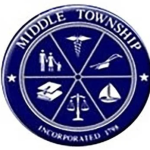CAPE MAY – The Mid-Atlantic Regional Coordinator for the National Oceanic and Atmospheric Administration (NOAA) was in Cape May, Feb. 16, for a talk about abandoned and derelict boats.
Cape May has at least one abandoned boat in the Cape May Harbor located under the jurisdiction of the U.S. Coast Guard base. This number is down from a high of 13 abandoned or derelict vessels (ADV) in 2007, according to Mark Allen, a local historian on the area of Cape May Harbor.
Allen welcomed NOAA’s Katie Morgan to the Nature Center of Cape May to speak on the topic “Addressing Abandoned and Derelict Vessels.” Morgan’s talk was part of the Nature Center’s Harborside Chat Series, which began Feb. 2 and runs through March 23. Morgan quickly let the guests at the Feb. 16 event know that addressing ADVs is very complicated.
Morgan works in NOAA’s Marine Debris Program and is one of only 25 people in a program that monitors waterways across the U.S. and its territories. Morgan was joined in Cape May by Star-Ledger reporter Steven Rodas, who has been covering climate change, including its effects on waterways and boats. Rodas showed a video showing images of derelict boats in the Hoboken area. In the video, a man identified as the Hoboken river master said the cost of removing ADVs is one factor in why they are simply abandoned.
“People die and leave a boat to family, but they are not doing them a favor,” he said.
“There’s no such thing as a free boat,” a member of the audience said.
Morgan cited the cost of removing abandoned boats as a challenge for individual owners, local and state governments, and even the federal government. Morgan showed a slide that presented the federal government’s challenges in addressing ADVs,including a lack of funding, lack of jurisdiction, lack of authority, and a lack of coordinated effort.
Some states, such as North Carolina, Florida, and some western states,have been collecting data on ADVs and have established policies and funds for removing the abandoned vessels.
Morgan said the individual owner often never anticipates what maintaining a boat will cost, and certainly doesn’tanticipate the cost of disposing of a fiberglass-hulled boat. She said once an owner learns the cost of salvaging a boat, perhaps with fines, and the cost of disposing of it, the least expensive option is to abandon it.
She said insurance is not a legal requirement for boats so many boat owners do not carry it. She said an ADV does not have much salvage value in terms of the costs associated with retrieving the boat. She showed an image of a boat that slammed into a roadway abutment during a storm, and looters got to it before the owner and stripped the boat of everything of value. The owner, she said, set up a GoFundMe page to raise money to dispose of the boat.
“A vessel can also be a person’s sole residence, and they are not prepared for storms,” Morgan said.
Allen said someone lived in an abandoned boat in Cape May Harbor for two years.
Morgan said the lack of funding was also the number one challenge for local and state governments. Rodas said state Sen. Michael Testa (R-1st) had introduced a bill in the New Jersey Legislature calling for $25 million in state money to be set aside to reimburse towns for the cost of disposing of ADVs.
Assemblyman Erik Simonsen (R-1st) said he introduced bill A-4141 on the Assembly side to create an “Abandoned Vessel Fund.” Simonsen said Testa introduced a companion bill in the Senate last May, but the bill wasn’t making any ground.
“The bill is not in committee,” Simonsen said.
Simonsen said he feels the bills are not getting to committee for political reasons, but also said he had just spoken to Assemblyman Anthony Verrelli (D-15th), the chair of the State and Local Government Committee, and he said he would try to get it into committee. Simonsen said he was told to send it to the Appropriations Committee, with the premise of the bill being that as money was collected through an excise tax on boat registrations, it would go into the Abandoned Vessels Fund.
Simonsen said he started working on the ADV issue as mayor of Lower Township. He attended a meeting with then–Cape May Mayor Chuck Lear at the Coast Guard base. Jurisdiction, he said, was one of the barriers discussed in the meeting.
Allen said Cape May Harbor has one part in Cape May, another part in Lower Township, and another under the U.S. Coast Guard, but there are other reasons why it is difficult to address ADVs, Morgan said. Morgan said there is also a liability issue. Towns are reluctant to move a boat because of the cost to the town, but also because they might face repercussions from the owner.
It’s often difficult to identify the boat’s owner because the registration numbers have been removed, the vessel has changed hands – perhaps informally and repeatedly –and looking for an owner can be a wild goose chase, she said. There is also the matter of jurisdiction. A number of these factors, one audience member said, will encourage people to abandon a vessel where they feel they are less likely to face consequences.
Local and state governments are less likely to initiate an ADV’s removal if they are not certain they will be reimbursed. Generally, she said,marine debris that is large and poses the biggest problem for marine navigation will ultimately get the most attention. Rodas said one of the other problems is simply that the sense of urgency is lower with an ADV. He said if a car was abandoned on a roadway, it would be quickly removed. Boats, he said, are generally where there is less traffic, and in fact, might be pushed by storms to an area that is hard to get to.
Morgan also said jurisdiction is a big problem. She said there are five federal agencies that oversee the waterways and marine debris, including the U.S. Army Corps of Engineers, the U.S. Coast Guard, the U.S. Environmental Protection Agency (EPA), the Federal Emergency Management Agency (FEMA), and National Oceanic and Atmospheric Administration (NOAA), but not one has complete jurisdiction to handle ADVs.
The U.S. Army Corps of Engineers will remove a boat that has been beached and the Coast Guard will raise a sunken boat, remove pollutants from the boat, and then allow it to sink again. FEMA will remove boats that have been placed in navigation lanes, including highways, by hurricanes or other natural disasters, and NOAA has a grant program to allow individuals or towns to dispose of ADVs.
Between October 2020 and September 2021, $50 million was requested from NOAA for the disposal of ADVs, however, only $1.8 million was granted. New Jersey was granted $385,000, Rodas said.
Morgan said the problem of ADVs has been larger than the money available,but she pointed to a bipartisan bill that would dedicate $150 million in federal funding toward addressing ADVs.
For the time being, the City of Cape May passed an ordinance that is now part of the city code, which says any vessel left on any public land or public waterway, or private property without consent, for more than 30 days, or for any time if it is partially or completely sunk, will be considered abandoned and can be impounded. The boat would then be placed in storage and the owner is considered to be “responsible for the cost of the removal, transportation, storage or disposal, and any other incidental costs associated with the impounded vessel, including but not limited to costs to acquire title to the same.”
Thoughts? Questions? Contact the author, Christopher South, at csouth@cmcherald.comor call 609-886-8600 ext. 128.








